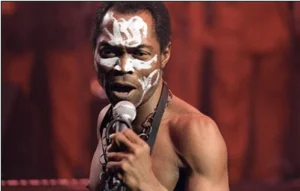
ACCORDING to history, There are several historical contexts attached to how various towns, cities and places got their names. The contexts are usually gotten from pre-historic oral rendition from the old-timers in such towns and cities. Most cities and places get their names from incidents, landmark occurrences and notable people. We would be discussing how popular places in Ibadan city got their names.
1. BODE
It is one of the popular places in Oyo State, Ibadan to be precise. It is widely known as the market of native herbs and spices.
According to history, it is formerly known as Badà Ọlọ́bọ’s area. It used to be a frightening thick forest, where a particular Hyena usually kill people. It took the intervention of warriors from ila town to conquer this animal.
There was a passage which was manned by the ila warriors to prevent the Hyena to enter the town, which in turn puts a gradual end to the killing of the inhabitants. The entrance was known as ẹnu òòlo bodè, which was later reduced to Bode till date.
2. OJOO
Ojoo is a popular place in Ibadan. It is situated after the University of Ibadan along Ajibode axis. Ojoo is one of the busiest places in Ibadan. According to narrative, Ojoo used to be a forest which was fertile for agriculture. In those days, after the warriors must have returned from a fight, they use Ojoo as a place of relaxation. The warriors usually call it ‘ibi ti ojo ro sii’ which means ‘a place which is comfortable’. The name was shortened to Ojoo.
3. OKE ADO
According to oral rendition, Oke Ado used to be a house to a very powerful warrior from Oyo town in Eje’s compound precisely, his name was Ado. He was a brave man. He stayed there with his elder brother, Agbejobi. He and his brother were able to wage war against the Egbas because they stayed on the hill, and it was easier to spot the enemies.
ALSO READ: RAW-FACT: Story Of June 12 And Why It Is Now Called Democracy Day In Nigeria
Ado’s fame attracted people from neighboring areas to his spot. When people want to visit his area, they would say ‘mò ń lọ sí òkè níbi tí Àdó wà’ which means ‘I am going to the hill Ado stays’. Gradually, people shortened it to Oke Ado.
This article is written based on an undergraduate research project carried by a colleague in the department of Linguistics and African Languages, University of Ibadan, Olatunji Opeyemi Muibat.
[Opera New]
ALSO READ: ÌJÀKADÌ L’ORÒ Ọ̀FÀ THE BATTLE FOR AKỌGUN || PART 1








